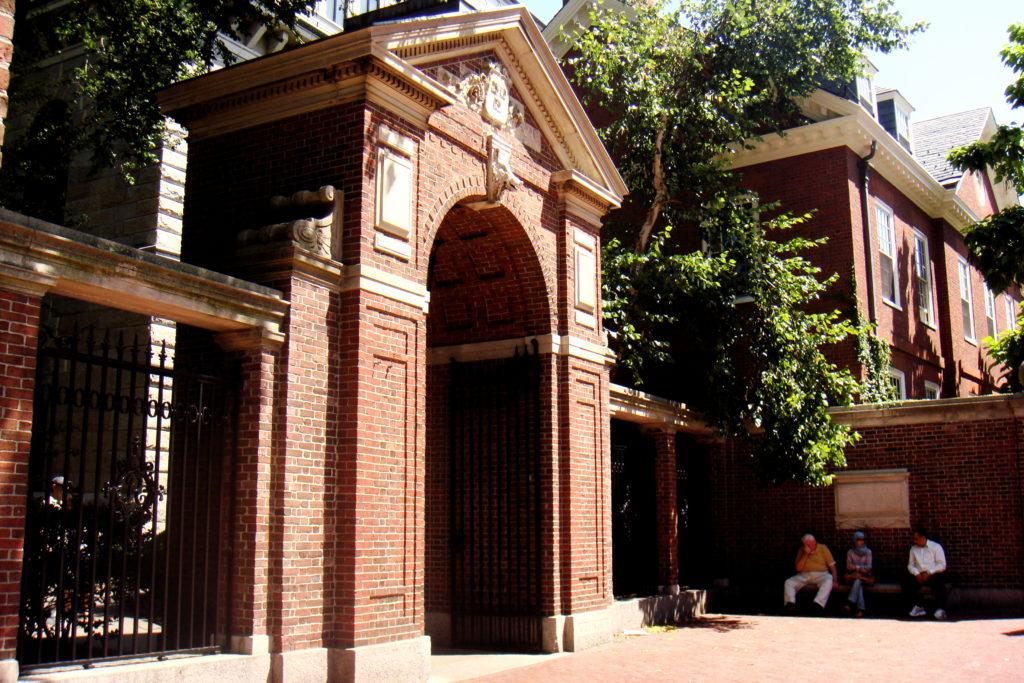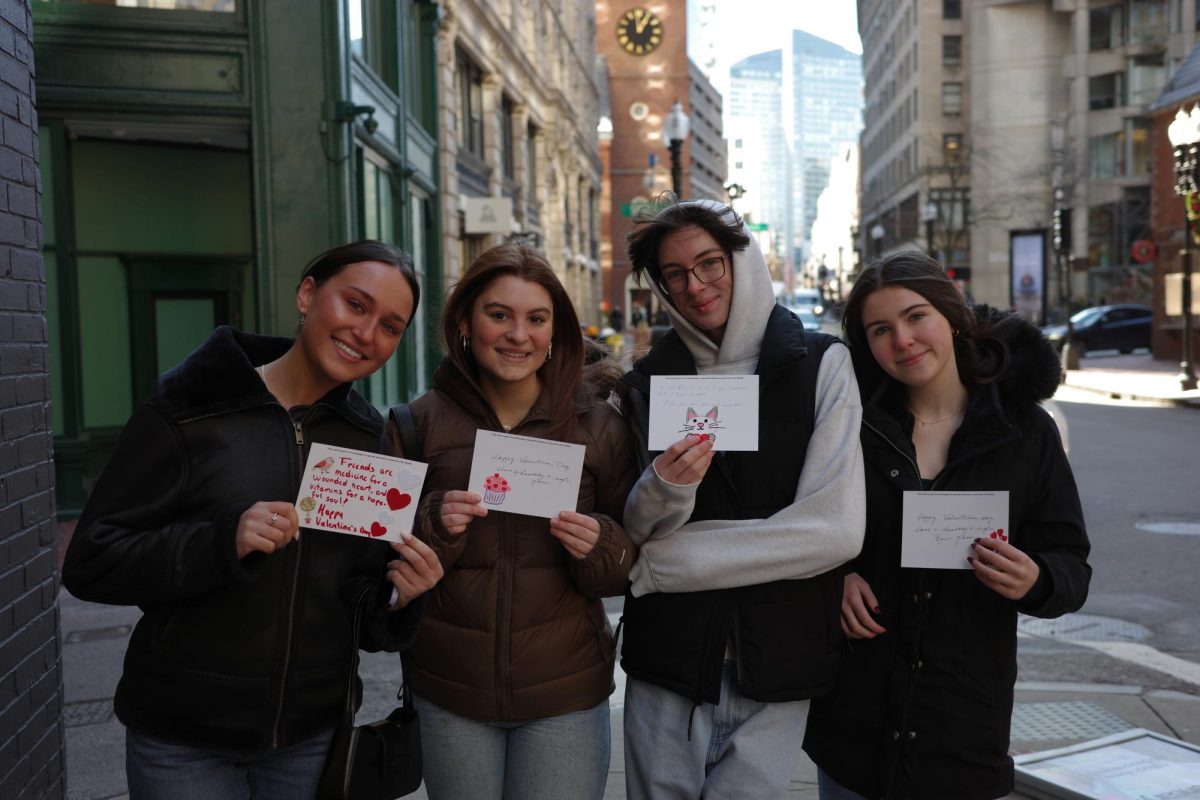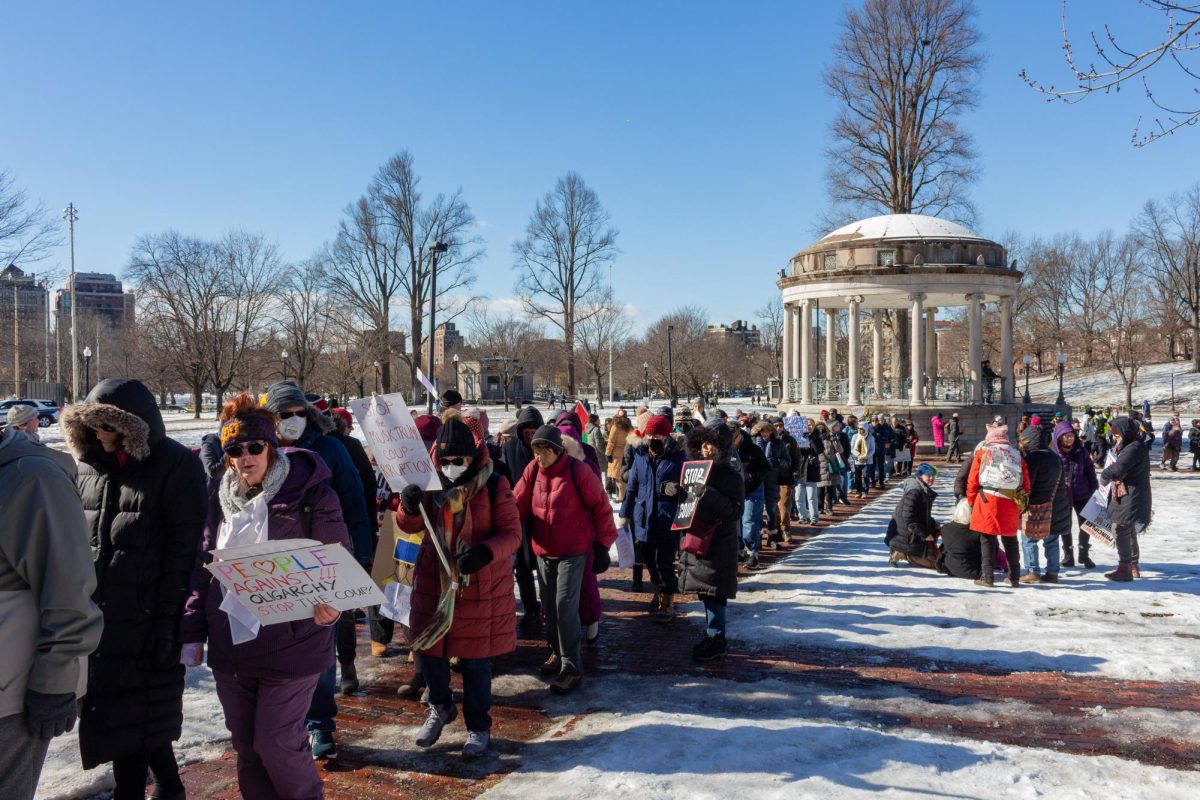By Ava Sasani, news staff
TRIGGER WARNING: This story contains material which may be upsetting or harmful to survivors of sexual violence and sexual harassment.
Nearly eight years before Rachael Denhollander met Larry Nassar, she said she was sexually abused by an adult member of her family’s church.
“At that age, I could not understand why this was happening,” Denhollander said at a Harvard University event Thursday titled ‘‘Can We Reconcile Justice and Forgiveness?”
Denhollander, the first woman to speak out against former USA Gymnastics doctor Larry Nassar for sexual abuse, spoke about how her Christian faith has guided her through her pursuit of justice and forgiveness in the aftermath of abuse. Denhollander recalled her first encounter with abuse at roughly 8 years old when she said her church community rallied around her alleged abuser and retaliated against Denhollander and her family.
“Even then, the message was clear. If you can’t prove your abuse, stay silent,” Denhollander said. “I internalized the message without realizing it.”
When Denhollander was referred to Nassar at age 16, she said she had already experienced public disbelief of sexual assault victims. Denhollander said Nassar’s fame and respect within the USA Gymnastics community compounded her fear of seeking help or speaking out.
“How would I begin to pursue justice?” she said. “Who would listen to some 16-year-old no-name gymnast?”
Scott Ely, a senior at Harvard College and member of the Harvard University Veritas Forum, hopes Thursday’s event will help evolve the way universities, institutions and society respond to survivors like Denhollander.
“This is a conversation for everyone,” Ely said. “The reaction shouldn’t be to immediately discredit the victim. [You] have to become willing to call people out at your own institution.”
At Thursday’s event, Denhollander described the 18-month experience after she reported Nassar’s abuse and broke the institutional silence that had protected him. More than 250 women have stepped forward since then to publicly accuse Nassar of sexual abuse. In January, 150 of those women joined Denhollander in a Michigan courtroom to submit victim impact statements during Nassar’s trial, which resulted in a 40- to 175-year prison sentence.
Denhollander said Nassar’s trial and sentencing were instrumental to her personal healing and forgiveness, noting that this reconciliation between forgiveness and justice was derived from her Christian beliefs.
“Justice is not in opposition to forgiveness — justice is the foundation of forgiveness,” Denhollander said. “Releasing personal resentment does not minimize, underplay, or excuse what happened, and punishment for evil does not happen because God does not love, but because he does.”
After Denhollander’s speech, Harvard graduate student Yingxue Wang stood with the crowd of audience members to give her a standing ovation.
“I’ve been lucky to not really experience any violence … but for me, the message of tonight is to listen and pay attention,” Wang said. “Like [Denhollander] explained, where there is a need, we need to spend some time to listen.”
A previous version of this story misspelled Rachael Denhollander’s name in the headline.










